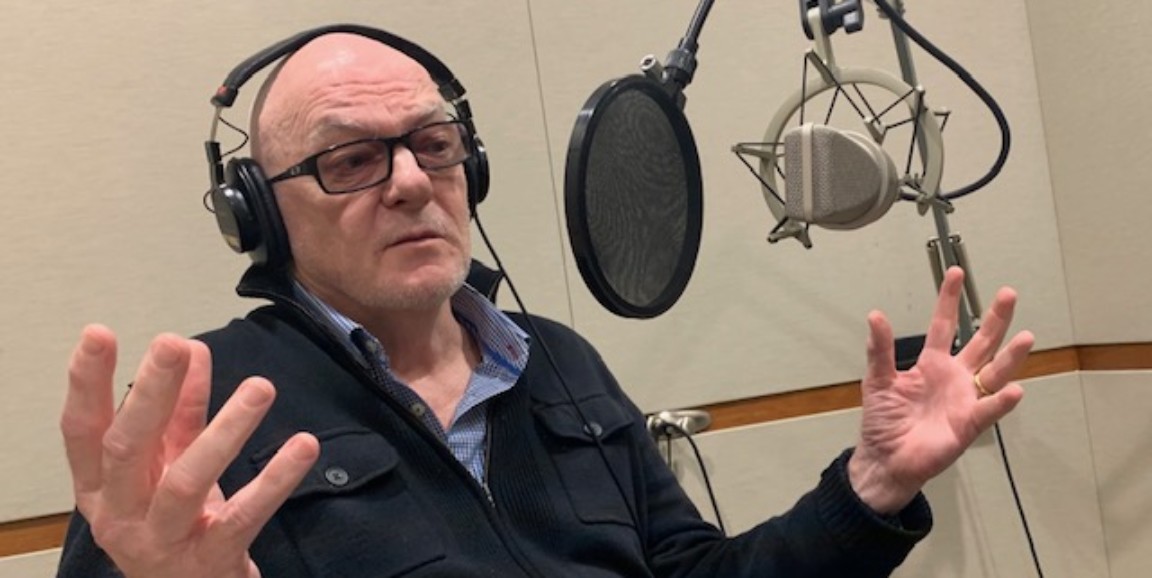Looking back over the past ten years of the podcast 1:2:1, I'm astonished at the variety of guests along with the depth and breadth of topics. I'm also proud that we began the format before podcasts became ubiquitous and turned it into a noteworthy and award-winning effort.
Many times, I was anxious while preparing, reading through the accomplishments of my interviewee. Yet as I settled in, more often than not, the interview grew comfortable, conversational.
Here are a few examples of what I think are standouts.
Former President Jimmy Carter
Former President Jimmy Carter spoke with me about the inequality that women and girls face around the globe. Now at 95, more fragile than in the past, Carter's stamp on equality and human rights is indelible.
"I've always been committed to human rights, and I see the abuse of women and girls as the worst example of that on Earth."
Former Vice President Dick Cheney
I spoke with former vice president Dick Cheney about his heart transplant when his memoir, Heart: An American Medical Odyssey, was released.
As we concluded the conversation, I thought I'd ask a funny throw-away question: "Have you ever considered what if you have the heart of a liberal Democrat?"
He laughed and then answered in what I thought was totally characteristically Dick Cheney: "I operate on the basis that it's my new heart. I don't spend a lot of time thinking about where the heart came from... From my own standpoint, it's a great gift from a donor and the donor's family, but now it's my heart."
Scientist Brian Kobilka
The quiet demeanor of Stanford Nobel laureate Brian Kobilka, MD, belies his brilliance as an biomedical researcher. We sat down a few days after he won the Nobel Prize in Chemistry in 2012, and he told me about lessons learned from watching his father run a bakery in Little Falls, Minnesota.
When my father died in 2004, I realized that the way I work in the lab was probably influenced a great deal by the way my father managed his business. It was a large bakery in a small town... and he had to manage people of different personalities and skills and abilities and that took a special talent in bringing the best out of people. He was always fair and had a way of finding what a person was best at doing. I'm working with incredibly bright people... but there are a lot of principles that still apply.
Neurosurgeon/author Paul Kalanithi
I was driving to the studio for my interview with the late Stanford neurosurgeon Paul Kalanithi, MD, and thinking, how do I start a conversation with someone who has a terminal illness and faces a very dire future?
Prior to the interview, we had a brief conversation about the trickiness of verb tenses.
"Having a terminal illness is a challenge to your sense of time and sense of identity," Kalanithi said. "I am a neurosurgeon, I was a neurosurgeon or I will be a neurosurgeon again. It's hard to know which is the most true of those statements. "
Kalanithi went on to write the astonishing memoir, When Breath Becomes Air, published posthumously in 2016. Finished by his widow, Stanford physician, Lucy Kalanithi, MD, it was a publishing phenomenon spending 68 weeks on the nonfiction bestseller list.
Surgeon Sherry Wren
Stanford surgeon Sherry Wren, MD, is from the south side of Chicago, like me. She's a no-nonsense surgeon who travels to the most remote regions of Africa to operate. When the Ebola crisis unfolded in West Africa in 2014, there were no guidelines on how to safely operate -- to remedy the gap, she co-authored a book, Operation Ebola.
"To me, it's boggling that you could have guidance on how to breastfeed a baby if you had Ebola or suspected Ebola but there is absolutely no guideline on how in the world you might do a surgical procedure. So if you had somebody who had got in a car accident who might also have been exposed to Ebola and needs a complex leg fracture treated, what's going to happen?"
Neurologist/author Oliver Sacks
I spoke with famed neurologist and author Oliver Sacks on the release of his last book, The Mind's Eye, in which he described a variety of visual abnormalities that stem from neurological accidents. We talked about his own malady, face blindness, and how he realized he had it.
I don't think that was until I met my brother in Australia whom I hadn't seen for 35 years. He was also quite unable to recognize faces, including his own, and places. Then, after I published The Man Who Mistook His Wife for a Hat, I got many, many letters from people saying they'd had this sort of thing all their lives and it was often in the family. At that point I realized that this must be something quite common, but almost never discussed. I think one of my reasons for writing is to open up a subject so it can be discussed.
Investigative reporter Sheri Fink
Stanford medical school alum Sheri Fink, MD, PhD, is an investigative reporter par excellence. She turned her powerful reporting of 2009 during Katrina into a searing piece of nonfiction, Five Days at Memorial, Life and Death in a Storm Ravaged Hospital and I spoke with Fink shortly after the book was published.
As chaos unfolded and backup systems failed, Fink told me, a family member of one patient asked, "Do you just flip a switch and you're not a hospital anymore?"
That family member had fought their way back into New Orleans to rescue their mother. And then they encountered the fact that their mother no longer had an IV, and medicines weren't being given at a normal time... This family member wondered why the hospital wasn't functioning like a hospital... I think for the future it will be important to look back at what factors allowed certain hospitals that were in similar situations to keep functioning.
There are more, many more. I hope you'll take a listen.
Photo by Daphne Sashin






